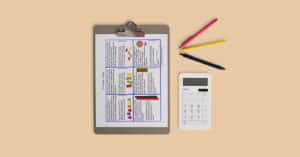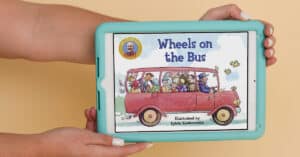You love the idea of curriculum-based therapy. Less prep for me and improved outcomes for students? Sign me up! But then you start thinking about all of the potential barriers.
How in the world am I supposed to get this all organized?
How can I possibly make time to find out what my teachers are covering in the classroom?
How do I make sure I’m actually providing therapy (not a fancy tutoring service!)?
Ugh. Overwhelming, right?
The good news is that it is totally doable!
1. Map Out Your Goals
I fill out a Caseload at a Glance sheet to map out my students’ goals. It’s easy to feel overwhelmed when tackling a new therapy approach, and this sheet just makes it feel that much more manageable!
Once you have your caseload’s goals mapped out, you’re ready to start prepping materials.
2. Prep Your Teaching Tools
Look through your students’ goals and identify which ones you feel comfortable teaching and have materials for.
When you’re implementing curriculum-based therapy, you’ll definitely want visuals to scaffold these skills (when you first introduce the skill and when you target the skill in context). I also like to have structured teaching activities and assessments on hand, in case a student needs extra support or in case I get stuck!
3. Reach Out to Teachers
Check out last week’s teacher communication post for a deep dive on this topic!
4. Plan Your Sessions
Now we get to put it all together!
I use SLP Now to keep track of my session plans, data, and communication logs. Check out the video above for a closer look at that process.






Leave a Reply